How to Layer and Space Plants
Many homeowners would like to enhance their existing landscape beds but don’t know how to place the plants to create beautiful, accent plantings. Consistency in your perennial garden plan is really important, as well as scale and balance, which can be created with your plantings using the techniques listed below.
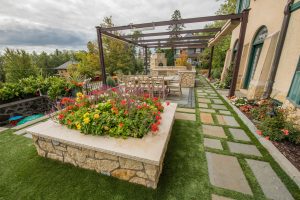
Repeat plants: Using specific plants throughout the entire landscape can create rhythm, and one’s eye will flow across the landscape.
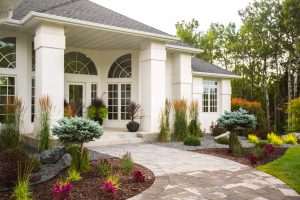
Color: Repetition is also achieved by choosing multiple plants in the same color family, such as light green, yellow, or even pink. In addition, choosing complimentary colors next to each other helps make the color pop out.
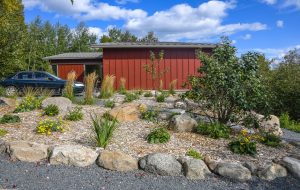
Height: Use the correct size plants so that they will fit into the area when they are fully grown. It’s important to use large enough (or small enough) plantings for the space you are putting them in. Therefore, taller plants, like grasses and shrubs should be planted in the back of a bed and shorter perennials and ground covers, planted towards the front of a bed.
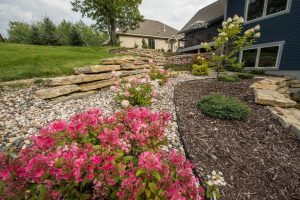
Organic Shapes: Rarely do you see plants in a row in nature. Many times if you put plants in a row, it is very noticeable if one plant dies, like a missing tooth. Plant in curved edges, as it will give you more fun pockets to fill and make it easier to mow.
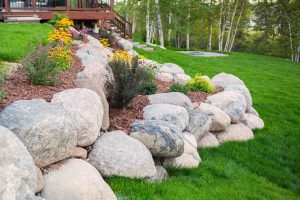
Space: Look at the mature size of the plant and make sure to plant it far enough away from other plants to allow it to grow. Also, more space between plants makes it easier to identify and remove weeds. Finally, make sure to keep trees far enough away from structures so the roots do not get near the foundation of your home or utilities.
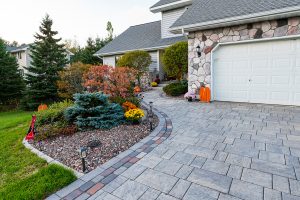 Grouping: Plants are similar to other living things, they like company, typically the company of their family. Plant in groups of three or more like plants unless you have a specimen plant, like a tree. If you have a single tree or shrub, don’t just plant it in the grass as it will be lonely, will have to compete for the water and get damaged during lawn maintenance. Also, plant low maintenance ground cover or perennials at its base so it will have “friends”
Grouping: Plants are similar to other living things, they like company, typically the company of their family. Plant in groups of three or more like plants unless you have a specimen plant, like a tree. If you have a single tree or shrub, don’t just plant it in the grass as it will be lonely, will have to compete for the water and get damaged during lawn maintenance. Also, plant low maintenance ground cover or perennials at its base so it will have “friends”

